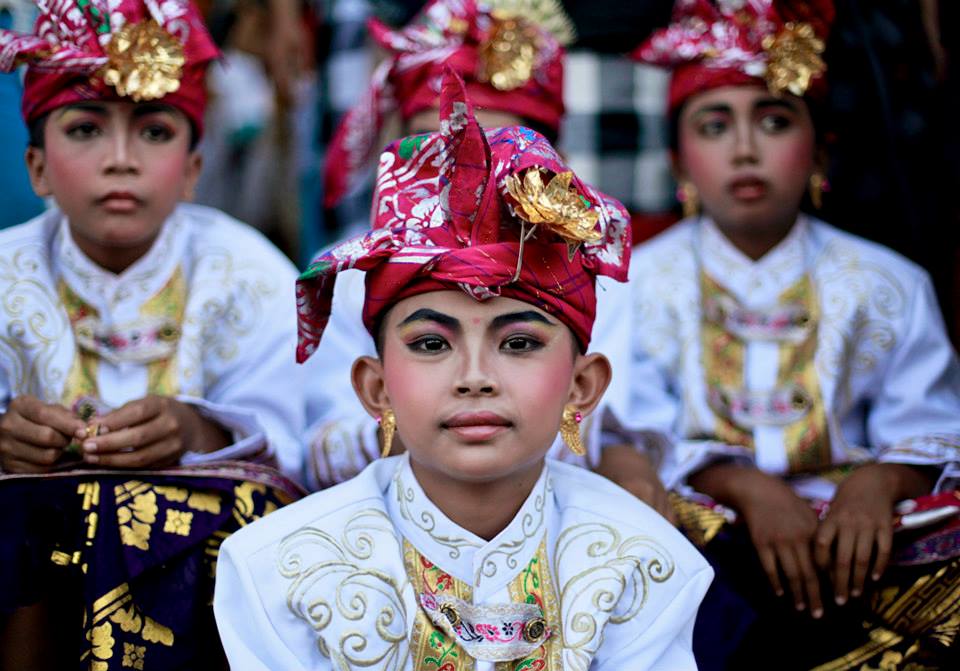
Five Interesting Facts About Bali
FIVE INTERESTING FACTS ABOUT BALI
Bali is one of the most visited islands in the world so many people know about its beautiful nature, friendly people, and unique culture. But there are some less-known aspects that are worth sharing, just to give you a deeper impression of how unique Bali truly is.
Here are five interesting facts that are unique to Bali:
1. NEWBORNS ARE NOT ALLOWED TO TOUCH THE GROUND
Newborns are not allowed to touch the ground for at least 105 days (or 3 months according to the Balinese calendar). The Balinese believe that newborns are considered holy and still close to the sacred realm from where they came. Aligned with the Balinese belief in reincarnation, the newborn is viewed as the rebirth of one of their own ancestors returning to Earth.
Balinese consider the ground to be ungodly and impure and so do not want babies to touch it. After 105 days, the family organizes the Nyabutan ceremony to prepare the baby for the next stage in life. During the ceremony, the baby’s hair is cut off, he/she touches the ground for the first time, and is officially given a name.
2. ASKING FOR DIRECTIONS IN BALI
Have you ever become lost in Bali? And when you ask the locals for directions, the response will be, “100 meters to the south, then 50 meters to the west, etc”. It must be confusing for visitors who have not yet a local sense of direction or it is midday and west or east are not obvious. The Balinese know!
Every traditional Balinese house has a family temple (Sanggah Kemulan/Pamerajan) which is oriented in relation to Mount Agung (the dwelling place of the Hindu Gods) and Besakih Temple (the mother of all temples in Bali). Most areas in Bali (except the northern part that has a reverse orientation) will orient their temple facing Mt Agung, located in the northeast of the island.
Depending on where you are in Bali, when you spot a family temple from the street you’ll be able to determine the compass points immediately. So next time you get lost and the locals give you directions, look for a family temple to cross-check!
3. DUCKS IN RICE FIELDS
Ducks are an important aspect of the ecology of Bali's rice agriculture. It is an ancient method of using ducks to minimize the application of pesticides. Ducks are herded into rice fields well before harvest so that they will eat algae and insect pests, as well as fertilize the fields with their droppings. Closer to harvest time, they are kept away from the ripening plants so that they do not eat the rice itself!
4. NO BURIAL IN BALI FOR NON-HINDU BALINESE
The daily life of a Balinese revolves around family and community. A village in Bali is made of several communities, called banjar, and each banjar has its own rules and policies. But one thing for sure is that everyone must contribute to the banjar activities and rituals. If a person has a wedding, the rest of the community chips in with the time, money, and effort to ensure that the wedding is a success. It is the same for a death in the community. The lengthy efforts of burial and cremation ceremonies following a person’s death will be carried out by the community.
Every banjar has its own cemetery, and to be buried in the community cemetery, you must be acknowledged as a community member by practicing Balinese Hinduism and being involved in your community’s ritual responsibilities. Only then, you have the right to be buried in the community’s cemetery where you lie for the period until the cremation can be organized.
5. THE COST OF CEREMONIES
Ceremonies are an integral part of life in Bali. Ceremonies are conducted every day to celebrate every single stage in one’s life from birth to death. Apart from big religious ceremonies, Balinese also hold ceremonies for temple anniversaries, to pay respect to their ancestors, the full moon, tooth filing (as a coming-of-age ceremony), tumpak landep (to bless all things made of iron and steel), and many more.
Another important reason a ceremony is organized is to please the Gods and demons. Balinese Hindus try to keep a balance between the two opposing forces of good and evil.
Most Balinese families spend 50% of their monthly income on ceremonies and use the remaining 50% for food, education, clothes, healthcare, and other needs. Despite living in an era of globalization and the influx of millions of foreigners annually, the Balinese people have been successful in keeping their culture alive. This is thanks to their commitment to passing down traditions and rituals to younger generations through participation in ceremonies.













Leave a comment
This site is protected by hCaptcha and the hCaptcha Privacy Policy and Terms of Service apply.